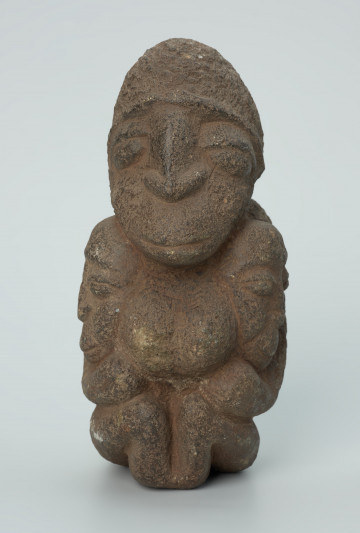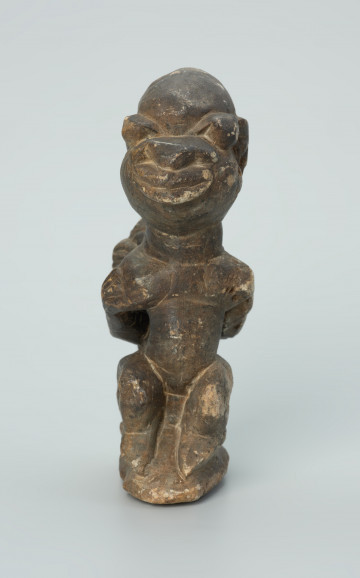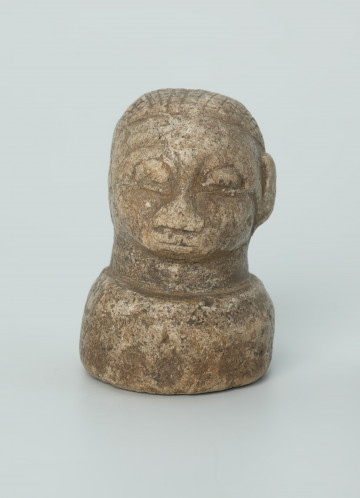
Figure of cult of dead
1901 — 1973
National Museum in Szczecin
Part of the collection: Stone figurines from West Africa
The Upper Guinea Coast is an area of modern Guinea, Sierra Leone and Liberia that has become famous for its carved sculptures in soft soapstone, usually called nomoli (plural nomolisia) or pomdo (plural pomda or pomta). Both types of figurines are not the products of their current users. It is also challenging to determine the purpose of their creation and their age, although researchers have noticed elements of the 16th-century Portuguese costume on some sculptures. They are usually found during agricultural works in Sierra Leone by the Sherbro, Temne, Kono, Limba and Mende peoples and in neighbouring Guinea by the Kissi group. They are considered lucky objects, powerful, fertility-promoting or the abodes of guardian spirits, protecting from theft, ensuring a good harvest, helping fortune-tellers. Nomolisia and pomda figures have been known to Europeans since at least the 1850s, and articles about them have been published since 1901. The presented sculpture shows a human figure in a sitting position. The figure is carved with a characteristic headgear, namely, a cap in the form of a truncated cone with thickened edges, whose shape resembles the tropical helmet used by Europeans in colonial times. The figure holds in its hands an object, probably a bow. According to some specialists, the figures equipped with shields or weapons may have originally represented leaders, rulers or great warriors. Serrated sideburns are marked under the figure's cheeks, which may also suggest that the sculpture represents a figure of high social status. In Sierra Leone, beards signify elders and sages, people endowed with exceptional respect, family leaders. A groomed beard is a symbol of those in power, it serves to distinguish those in power from ordinary people. It also symbolises fertility and the longevity of a family.
Katarzyna Findlik-Gawron
Author / creator
Dimensions
cały obiekt: height: 21,1 cm, width: 9,5 cm
Object type
figure
Creation time / dating
Creation / finding place
Identification number
Location / status

1901 — 1973
National Museum in Szczecin

1901 — 1971
National Museum in Szczecin

1901 — 2000
National Museum in Szczecin
DISCOVER this TOPIC
National Museum in Lublin
DISCOVER this PATH
Educational path